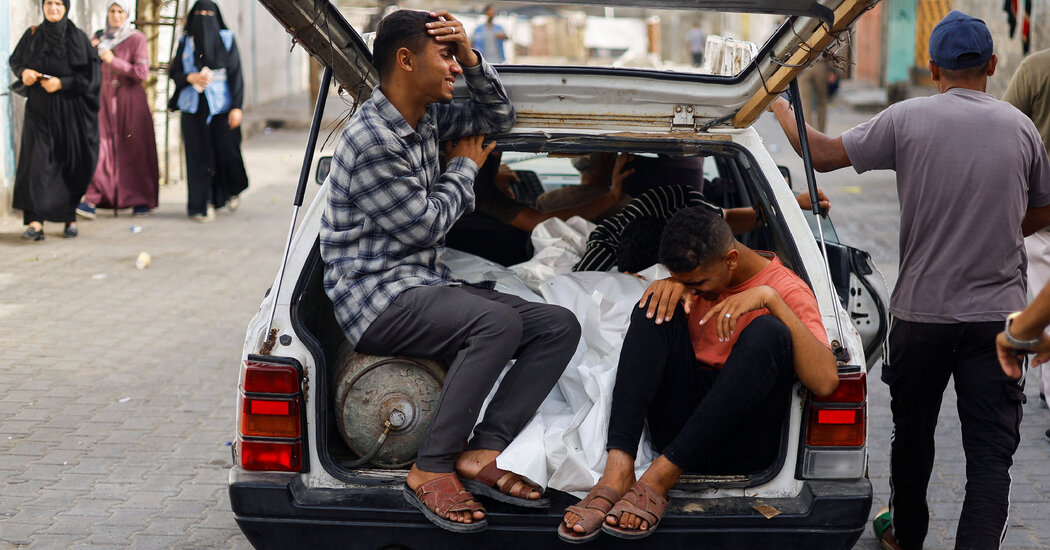
Tor Wennesland, the United Nations special coordinator for the Middle East peace process, condemned the airstrikes and said he was “deeply troubled by the deaths of so many women and children in an area where people have sought refuge.”
Germany's public broadcaster reported that the country's vice-chancellor, Robert Habeck, said on Saturday that Israel's offensive in Rafah was “incompatible with international law.” Senior German officials had previously warned Israel against attacking Rafah, but Habeck's comments appeared to represent a hardening of that tone in a country with a long-standing policy of support for Israel.
“Israel must not carry out this attack, at least not in the way it did before in the Gaza Strip, bombing refugee camps and so on,” Habeck said.
The Israeli military said the attack targeted a Hamas compound and that “precise munitions” were used to kill two senior Hamas leaders. But according to Gaza's Health Ministry, at least 45 people were killed and more than 200 injured in the strike and fires that followed.
In a statement, a White House National Security Council spokesperson acknowledged that the assault killed two senior leaders responsible for the October 7 attacks on Israel and said Israel “has the right to attack Hamas.”
“But as we have been clear, Israel must take every precaution possible to protect civilians,” said Eduardo Maia Silva, spokesperson for the council, before referring to the Israel Defense Forces, adding: “We are actively engaging the IDF and partners on place to evaluate what happened and understand that the IDF is conducting an investigation.”
The assault drew criticism from humanitarian groups, such as the International Rescue Committee, which issued a statement saying it was “horrified” and calling the affected area a “designated safe zone.” Israeli officials insist that the attack occurred outside the area designated as a safe zone for civilians. The IRC also called for an end to the Israeli assault, a full ceasefire and the release of all hostages.
Martin Griffiths, United Nations emergency relief coordinator, denounced the Israeli attack on social media and, referring to the Israeli army's activity in southern Gaza, lamented how humanitarian agencies had struggled to collect goods in the necessary measure.
“Such impunity cannot continue,” Griffiths said.
Philippe Lazzarini, head of UNRWA, the main UN humanitarian agency for the Palestinians, described the images from Rafah as “a testimony to how Rafah has turned into hell on earth”.
The agency has had difficulty contacting its teams on the ground in Rafah, it said, and some of its staff are missing.
“UNRWA is doing everything possible not to interrupt the delivery of humanitarian aid. But as the days pass, providing assistance and protection becomes almost impossible,” Lazzarini wrote on X.
Catherine Russell, executive director of UNICEF, said the continued attacks in Rafah pose “a catastrophic risk to the children taking refuge there”, adding that many have already suffered extreme loss and hardship.
“They must be protected, along with the few remaining basic services and infrastructure they need to survive,” Russell wrote.
